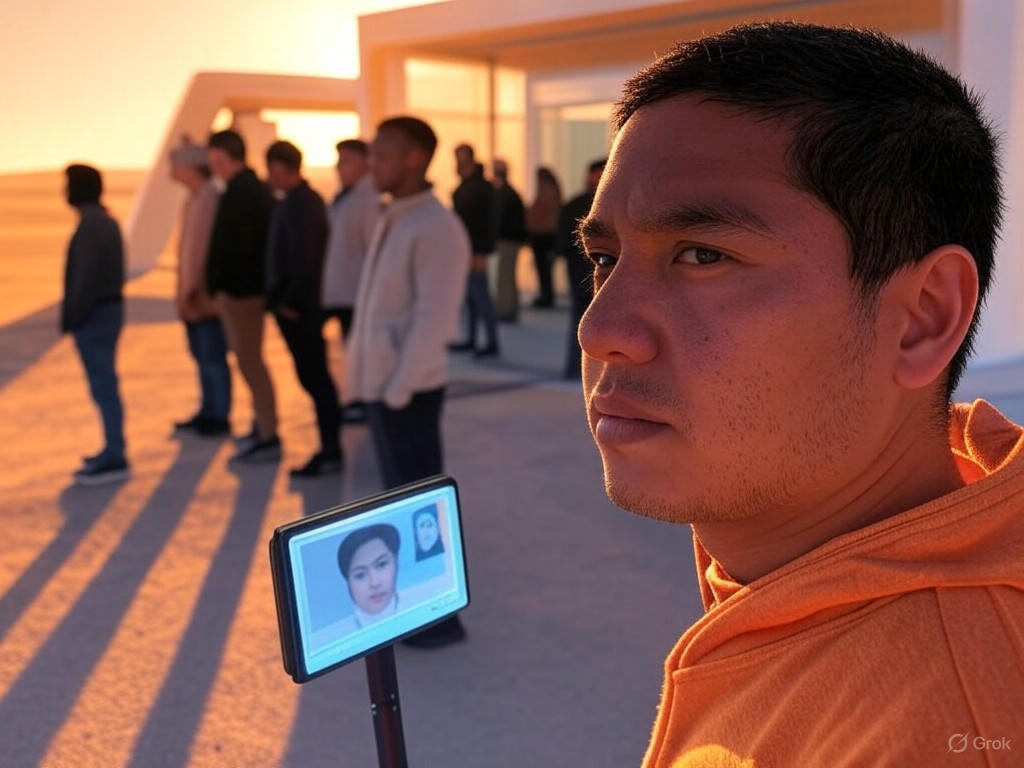
Trump Due Process for Immigrants: Uncertain Rights Stance
Overview of Trump’s 2025 Immigration Policy Direction
In the initial weeks of President Trump’s second term, sweeping changes to Trump immigrant due process have emerged as a flashpoint. These reforms, driven by executive orders, are reshaping how immigrants navigate the system, often prioritizing rapid enforcement over individual protections. While aimed at bolstering border security, they spark debates about fundamental rights and fairness.
You might wonder, what does this mean for families fleeing danger or workers building lives here? Let’s break it down—Trump’s approach cuts through longstanding procedures, leaving many in limbo and prompting lawsuits that question the balance between security and humanity.
Key Focus Areas in the New Immigration Approach
The administration’s 2025 strategy zeroes in on tightening controls, with policies that directly impact Trump immigrant due process. Think of it as a shift where speed trumps thoroughness, affecting everything from asylum claims to daily life for undocumented residents.
- Drastic limits on asylum and humanitarian entries, closing off vital escape routes
- Widespread expansion of expedited removals, skipping traditional checks
- Challenges to programs like birthright citizenship, testing constitutional boundaries
- Greater collaboration between federal and state forces for everyday enforcement
- New mandates for immigrant self-registration, heightening the stakes for non-compliance
These elements create a ripple effect, making immigrant due process under Trump feel more precarious than ever. For instance, a family arriving at the border might now face immediate rejection, without the chance to share their story.
Restricting Asylum Rights and Humanitarian Entry
Under Trump’s directives, pathways for asylum seekers have narrowed significantly, reflecting a broader erosion of Trump immigrant due process. Programs that once offered refuge are now on hold, leaving vulnerable individuals with few options.
Critics argue this conflicts with global standards, like those in the UN Universal Declaration of Human Rights. Imagine a parent escaping violence, only to be turned away at the gate—what kind of message does that send about America’s values?
- The southern border is largely off-limits for humanitarian migrants, leading to potential dangers back home
- Federal funds for refugee support have been paused, even for those already approved
- Special paroles for people from conflict zones are gone, cutting off lifelines
Impact on Asylum Seekers
The real toll of these restrictions hits asylum seekers hardest, where due process in Trump’s immigration policies is often sidelined. Without proper evaluations, claims of persecution go unheard, increasing risks of wrongful deportations.
Have you considered how this affects communities? A simple border crossing could mean separation from loved ones or return to harm. Advocacy groups are stepping up, pushing for reforms to restore these essential safeguards.
Challenges to Immigrant Due Process: Expedited Removal and Administrative Orders
One of the most contentious aspects of Trump immigrant due process involves expedited removal, which allows for quick deportations without full judicial review. This change bypasses layers of protection that immigrants once relied on, raising ethical questions about fairness.
It’s like fast-tracking a decision that could alter someone’s life forever. For those with legitimate fears, this means less time to gather evidence or seek help, turning what should be a careful process into something rushed and impersonal.
What Expedited Removal Entails
- ICE agents can issue deportation orders on the spot, often without external oversight
- Options for appeals are scarce, limiting chances to fight back
- Deadlines for proving residency are tighter, making errors more costly
In practice, this has led to stories of people being removed despite strong cases, highlighting how immigrant rights under Trump are being redefined. If you’re navigating this system, consulting an immigration expert early could make all the difference.
Project 2025: Intensifying Enforcement and Shrinking Rights
Drawing from Project 2025’s blueprint, Trump’s policies are ramping up enforcement in ways that further challenge Trump immigrant due process. This plan calls for massive deportations and cuts to protective programs, affecting millions.
For example, ending Temporary Protected Status could uproot families who’ve lived here for years. It’s a stark reminder of how policy shifts can disrupt lives, and experts warn of the economic fallout from losing contributors to our workforce.
| Policy Change | Intended Effect | Rights Implications |
|---|---|---|
| Repeal of TPS and DACA | Targets over a million for potential removal | Strips away job rights and stability, fostering uncertainty |
| Mandatory E-Verify Expansion | Forces businesses to verify status electronically | Risks unfair exclusions and workplace discrimination |
| Cooperation with Local Law Enforcement | Blurs lines between state and federal actions | Heightens chances of profiling and community distrust |
Immigrant Registration Mandate
The new registration rules add another layer to the challenges of Trump’s due process for immigrants. By requiring self-reporting, they create a climate of fear, where staying under the radar feels impossible.
Failing to register could lead to severe penalties, pushing people into hiding. This isn’t just about paperwork—it’s about preserving dignity in a system that seems stacked against them.
Birthright Citizenship and Constitutional Testing
Trump’s efforts to revisit birthright citizenship directly test the foundations of Trump immigrant due process, potentially denying rights to children born in the U.S. Courts have intervened, but the fight continues.
This debate touches on deeper issues: What makes someone American? As legal battles unfold, families are left wondering about their future, underscoring the human side of these policies.
Legal and Humanitarian Backlash
The response to these changes has been swift, with lawsuits challenging the core of immigrant due process under Trump. States and organizations are fighting to uphold international commitments and domestic laws.
- Courts have halted parts of the birthright push, offering temporary relief
- Challenges target border policies and registration demands
- Advocates highlight risks of racial bias in enforcement
In one case, a coalition sued to protect asylum access—it’s a reminder that change often comes from collective action. If this affects you, look into resources from groups like the ACLU for guidance.
Future Outlook: Uncertain Rights and Rising Tensions
Looking ahead, Trump immigrant due process remains a key concern, with ongoing uncertainties shaping immigrant experiences. The mix of court rulings and advocacy could tip the scales, but tensions persist.
Will reforms bring balance, or deepen divides? This evolving story invites us to reflect on what’s at stake for our communities and global standing.
Frequently Asked Questions: Navigating Immigrant Due Process Under Trump
- Can asylum seekers still seek protection?
Options are limited now, but court decisions might open doors—stay informed through reliable sources. - How does expedited removal work?
It speeds up deportations for many, cutting out hearings and emphasizing Trump immigrant due process challenges. - Are legal rights like counsel protected?
Not always, as new rules restrict access, making expert advice crucial. - Is birthright citizenship secure?
It’s holding for now due to court blocks, but the debate rages on.
Conclusion: The Road Ahead
As Trump’s policies evolve, the fate of immigrant due process hangs in the balance, affecting real people and families. It’s a call to action: engage with advocates, stay updated, and push for equitable change.
What are your thoughts on these developments? Share your experiences in the comments, explore more on our site, or connect with experts to make a difference—your voice matters.
References
- Brookings Institution. “100 Days of Immigration Under the Second Trump Administration.” Source Link
- Migration Policy Institute. “Trump 2.0: Immigration in the First 100 Days.” Source Link
- White House. “Protecting American Communities from Criminal Aliens.” Source Link
- New York City Bar Association. “The Trump Administration’s Early 2025 Changes to Immigration Law.” Source Link
- Civil Rights Organizations. “Project 2025 Immigrants’ Rights.” Source Link
- Texas Tribune. “Donald Trump’s Immigration Executive Orders.” Source Link
- Docketwise. “Immigration Blog Insights.” Source Link
- NILC. “FAQ on Trump Immigration Registration Requirement.” Source Link
Trump immigrant due process, Trump immigration policy, asylum rights 2025, immigrant rights under Trump, expedited removal policies, Project 2025 immigration, humanitarian parole programs, birthright citizenship challenges, refugee resettlement issues, due process in immigration




